Balancing when opposition stop bidding at a low level
When the bidding is about to die out at a low level it can be worthwhile bidding on a marginal hand rather than defending. This bidding technique is known as balancing.
Balancing over a 1 level opening bid
One of the most common balancing situations is when a 1 level opening bid in a suit by the dealer gets passed around to the player in fourth seat.
Double
A balancing double typically shows around 8+ points.
Simple Overcall
This is the same as a normal overcall.
1NT
An overcall of 1NT shows a balanced hand, a stopper in the opponent's suit and 15-18 points. But if the responder passes the opening bid then the last player to bid is in the balancing position and a balancing 1NT can be made on a weaker hand. Different partnerships have different agreements about the strength of a balancing 1NT but 12-14 is typical.
On this next hand, South is in the balancing position.
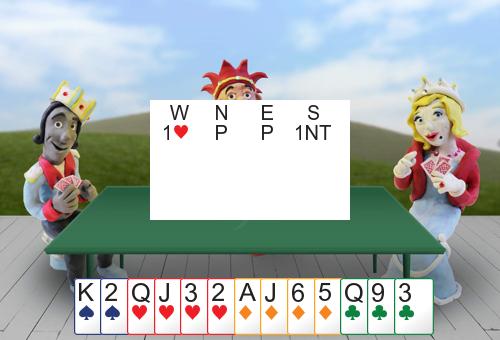
Note that a takeout double from South wouldn't be good because of the doubleton spade.
If you normally play Stayman and transfers after a 1NT overcall from partner you'll need to agree whether that still applies over a balancing 1NT.
2NT
Some players use 2NT here as the Unusual 2NT showing the lower 2 unbid 5 card suits.
Other players use 2NT in this position to show a strong balanced hand. Again, you'll need to agree the point count but typically it'll be around 19-21 points.
What can I bid on this hand?
East has opened 1♣ and nobody's vulnerable, so that's the perfect time to be bidding. But what can I do?
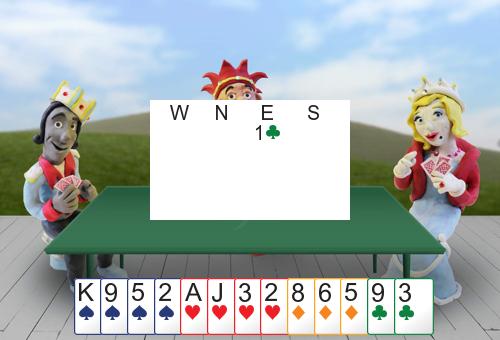
I don't have a good five card suit to overcall. I can't double because I've only got 8 high card points and partner will be expecting a stronger hand. So I've just got to pass.
West bids 2♣ and North and East both pass back to us in the south seat.
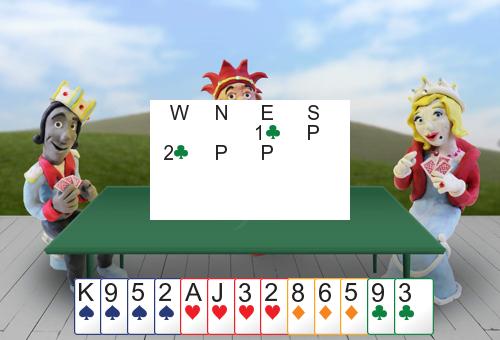
Our hand hasn't grown any stronger. We haven't sprouted points or anything here. So it seems like there's nothing we can do. If we knew what partner had, maybe we could do something but partner hasn't bid. However the opposition have bid and that tells us a lot about their hand, but it also tells us about partner's hand.
Their bidding helps us!
East opened the bidding showing 12 points West bid, 2♣ to show 6-9 points and East then passed. So East can't be that strong because if she had a decent hand she would bid game or even try for game, but she wasn't even interested in that. So East must have a reasonably minimum hand. Now we don't know the exact number but we can take a pretty good guess about East and West's combined high card strength.
What do you think? Work it out. What do you think East and West might have between the two hands? 20 or something like that. Give or take a couple. So if they have about 20, we have about 20. And just because they've opened the bidding, why should they be the ones who are playing the hand when the points are evenly split?
East and West have bid and supported clubs so they have a fit. We don't know that we've got a fit but, because they do, we probably do.
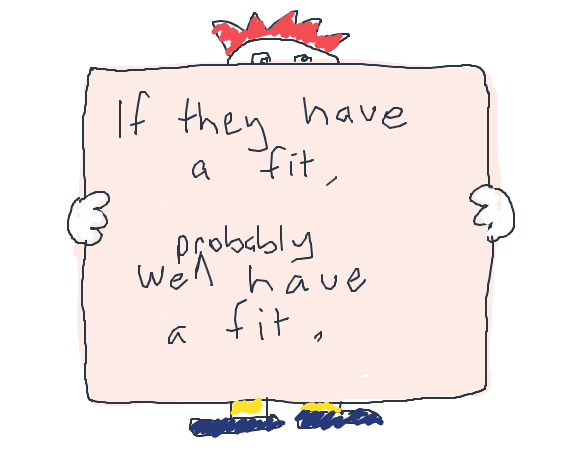
So we can double, asking partner to choose a suit.
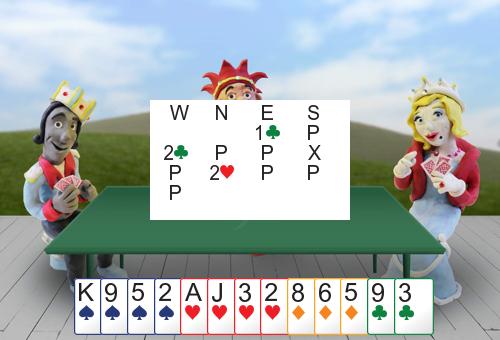
Double normally shows 12 points as the overcaller, but we are balancing here and partner also should be awake and realize this is a balancing auction. And secondly, we already passed on the first round. Points for overcall and doubles don't apply here. It's a different situation. We're balancing.
tags: #competitivebidding #balancing
